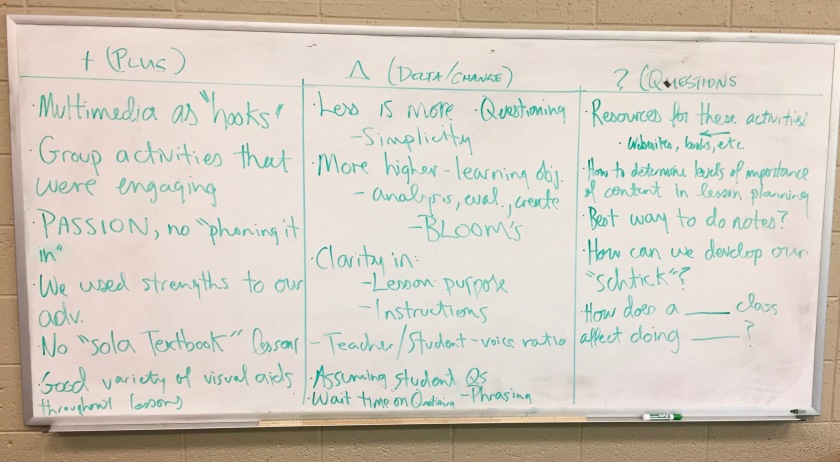Differentiation is not so much the “stuff” as the “how.” If the “stuff” is ill conceived, the “how” is doomed.
- Carol Ann Tomlinson
While we’ve dabbled into what differentiated instruction is (and we will spend more time on it in the future), let’s consider Tomlinson’s Insights, in this readable 7-page article.
By class time Wednesday, read Differentiated Instruction and post a response to the following:
1. Spend 1 paragraph to describe each of the following classrooms:
a) Mr. Appleton’s (who presents factual stuff) approach to teaching,
b) Mrs. Baker’s (whose class does different stuff) approach to teaching,
-and-
c) Ms. Cassell’s (alternative approach) to teaching.
2. Use the text to explain (in at least 1-2 paragraphs) your takeaway on what differentiated instruction isn’t (that is, what it is commonly misunderstood to be), and –most importantly– what differentiated instruction authentically is.

 By the start of next Thursday’s class (2/9),
By the start of next Thursday’s class (2/9), 
